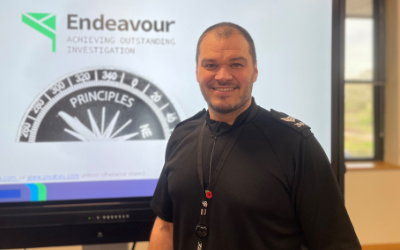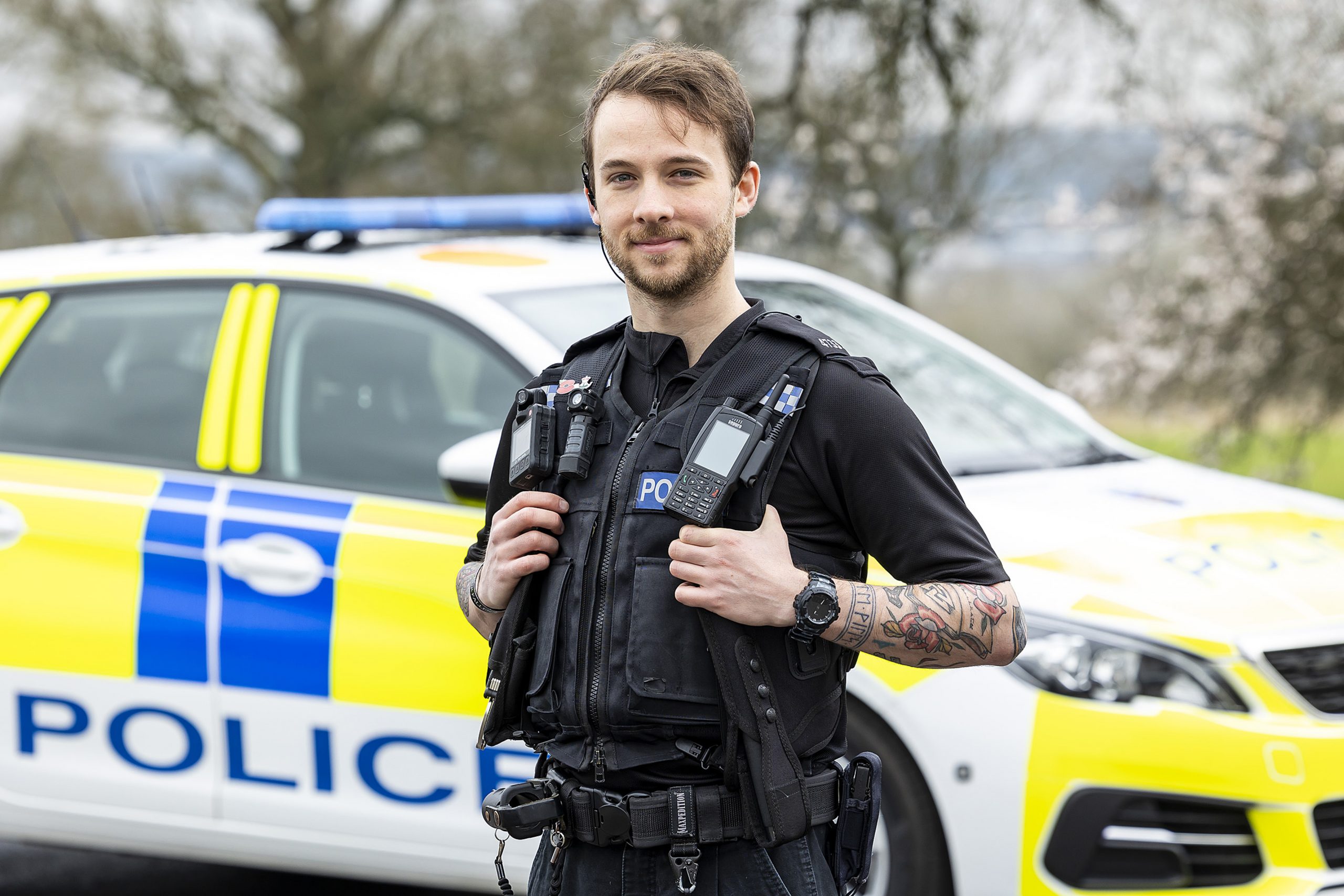Foundation Training as a student Police Officer
In order to become a substantive Police Officer you will first complete foundation training so you can develop your knowledge and skills to help effectively protect our communities.
What is the foundation training as a Police Officer?
We work with a range of experts to compile and deliver leading foundation training for our new Police Officers.
- Across 14-24 weeks (depending on the entry route you’ve chosen), you’ll undergo a blend of classroom (including e-learning) and practical learning to understand the basics of general policing and prepare you to join Incident & Crime Response (ICR).
- This will include knowledge of operational guidance, legislative powers, and Thames Valley Police (TVP) mandated policies/systems, and will be centred around vulnerability and risk, investigations and criminal justice.
- On a typical day-to-day, your mornings will consist of teaching followed by an afternoon of applying that knowledge. For example, you could spend the morning learning about the theory and principles behind stop and search powers, and then put that learning into practice in the afternoon with role play scenarios. Want to know what you’ll be doing? See what an example training timetable looks like.
Please note that if you are on the PCDA entry route, you will complete assignments as part of your training. These could include reflective assignments, evidence based research projects, presentations, etc.
Hover over the tiles to have a look at what foundation training entails:
Classroom Learning
Scenario Based Training
Physical training
Where is the foundation training held?
We have two training facilities within our force. Our main training centre is in Sulhamstead, Berkshire, and we also hold training at Headquarters North in Kidlington, Oxfordshire. All student Police Officers will visit Sulhamstead for some elements of their training (e.g. operation days).
Sulhamstead training centre is set in over 60 acres of countryside and provides facilities for Foundation Training, Firearms, and the Joint Operations Unit Dog Section, and also hosts a gym and half board accommodation at Imbert Court.
Please note that if you live more than 30 crow miles away, 40 miles by road or one hour’s commute each way from the training centre you attend, you are entitled to accommodation on Monday to Thursday nights. Further details will be provided during the application process.
Who will your trainers be?
Our team is made up of over 40 Foundation Trainers with varying experience across both TVP and other police forces. All of our trainers are driven by their desire to share their knowledge and passion for policing to a new generation of officers and give them the best start to their careers as possible. Many of our trainers are:
- Former Development Assessment Officers (DAO) who worked in Incident & Crime Response (ICR) tutoring students
- Retired Sergeants and Inspectors who return to TVP in a civilian role to pass on their skills and knowledge

Sergeant Andy Blagrove, Foundation Skills Trainer
"The most rewarding part of being a Foundation Skills Trainer is seeing student officers develop their skills and confidence as the courses goes along. Some of my ex-students were recently acknowledged during the Police Federation Bravery Awards and to see just how far they had gone was brilliant."
What do our student Police Officers think?
During your foundation training you will also:
Take your oath
Those who decide to become police officers take an oath at the point of becoming a constable. The oath, or attestation, is set within the legislation of this country, and is as follows:
“I do solemnly and sincerely declare and affirm that I will well and truly serve the King in the office of constable, with fairness, integrity, diligence and impartiality, upholding fundamental human rights and according equal respect to all people; and that I will, to the best of my power, cause the peace to be kept and preserved and prevent all offences against people and property; and that while I continue to hold the said office I will to the best of my skill and knowledge discharge all the duties thereof faithfully according to law.”
Receive your uniform
You will be issued your uniform within the first week of training, and it will then become standard classroom dress throughout your training. This will include all of the dress you will need as a Police Constable (PC).
Please note you will need to buy your own footwear before you start. More details on acceptable footwear will be made available to you during the application process.
The College of Policing also provides a standard for appearance. This includes details on hair, facial hair, jewellery, make-up and spectacles.
Learn about the Code of Ethics
On 24 January 2024, the College of Policing published a new national Code of Ethics to reflect the challenges of modern-day policing whilst outlining the professional behaviours that the public can expect to see from officers, staff and volunteers.
Designed to underpin the policing sector, the Code of Ethics outlines the professional behaviours from a service that is fair, ethical and can be trusted to make decisions in the interest of keeping the public safe. The new Code aligns and helps to underpin Thames Valley Police’s own vision of being an excellent police force trusted by all our communities. As part of any new starter’s training/induction, you will receive a bespoke input about the Code of Ethics and how it applies to your everyday working practices.
You can read the Code of Ethics and find further information and resources about it, on the College of Policing website.
Be provided with force tech
You will be provided with a force laptop and mobile phone to complete your training on, and later assist in your role on Incident & Crime Response (ICR).
Annual leave
During year 1 there are three weeks annual leave which are taken at fixed points during the timetable and cannot be moved. You will be made aware of when these weeks will be.
During the first 24 weeks you may be required to work on one or two Saturdays, to accommodate any bank holidays. Additional annual leave cannot be taken during this time. Following the completion of your tutorship you will be able to book annual leave.

What's next?
After completing your foundation training, you will move as a Police Constable (PC) on Incident & Crime Response (ICR) to a base station where your tutoring will start. Find out how your day-to-day will be like and how you'll continue to be supported.


 Facebook
Facebook
 Twitter
Twitter
 Linkedin
Linkedin
 Instagram
Instagram